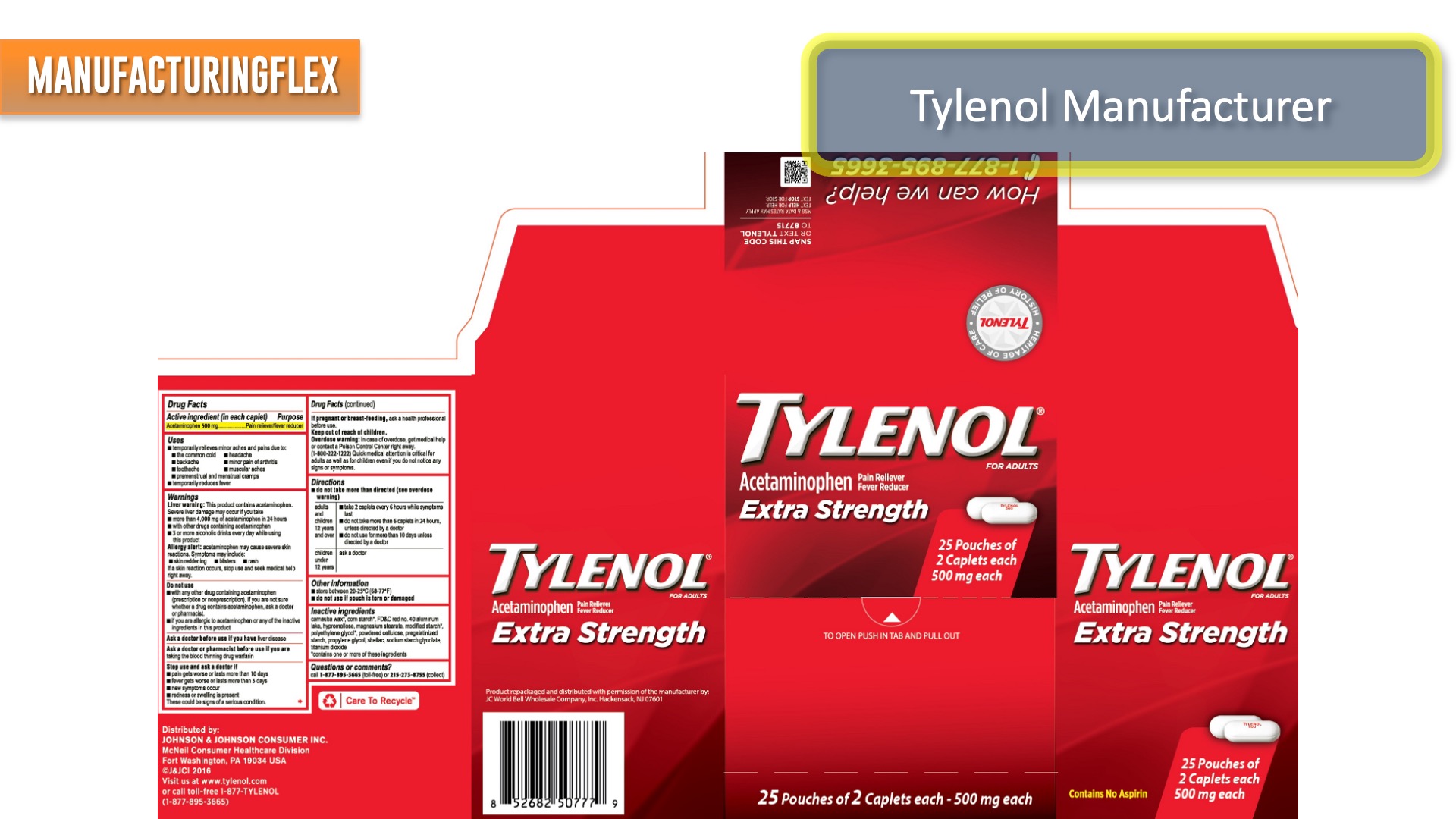Tylenol, a widely recognized over-the-counter (OTC) medication, is synonymous with pain relief and fever reduction across the globe. Known chemically as acetaminophen (in the U.S. and Japan) or paracetamol (in other countries), Tylenol’s production and distribution is a subject of interest for many. This article provides detailed insights into the manufacturer of Tylenol, its history, production processes, and the impact it has made on the pharmaceutical industry.
Tylenol, also known by its generic name acetaminophen, is one of the most widely-used over-the-counter medications in the world. Its chemical makeup may seem simple compared to other pain relievers, but its effectiveness cannot go unnoticed. Acetaminophen has been trusted by millions for decades due to its ability to alleviate mild to moderate pain and reduce fever without causing stomach irritation like other nonsteroidal anti-inflammatory drugs (NSAIDs).
What makes Tylenol even more interesting is its mechanism of action. Unlike NSAIDs that inhibit enzymes called prostaglandins which are responsible for promoting inflammation, Tylenol works by inhibiting an enzyme called cyclooxygenase (COX). By targeting this specific enzyme, acetaminophen can effectively reduce pain and fever while bypassing the normal inflammatory responses in the body. This unique approach may explain why some individuals who do not tolerate NSAIDs well find relief with Tylenol.
Although it may be synonymous with pain relief worldwide, it’s crucial to use Tylenol responsibly and follow proper dosing guidelines. Taking too much acetaminophen can have serious consequences on the liver as it is metabolized primarily in this organ. Therefore, understanding recommended daily limits and avoiding alcohol consumption while using Tylenol are essential precautions we should all take when relying on this trusted medication for effective pain management or fever reduction.
Who Manufactures Tylenol?
Contents
- 1 Who Manufactures Tylenol?
- 2 History and Development
- 3 Manufacturing Process
- 3.1 Synthesis of the active pharmaceutical ingredient (API), acetaminophen.
- 3.2 Formulation, where the API is combined with other ingredients to create the final product form, be it tablets, capsules, or liquid.
- 3.3 Tableting or encapsulation for solid forms, followed by coating if necessary.
- 3.4 Quality control testing to ensure compliance with regulatory standards.
- 3.5 Packaging and labeling in compliance with regulations and consumer safety standards.
- 4 Quality Control and Safety Measures
- 5 Impact on the Pharmaceutical Industry
- 6 Frequently Asked Questions (FAQ)
- 7 Conclusion
Tylenol is manufactured by McNeil Consumer Healthcare, a subsidiary of the pharmaceutical giant, Johnson & Johnson. McNeil Consumer Healthcare has been at the forefront of producing Tylenol since its inception, overseeing the brand’s growth into one of the most trusted names in pain relief and fever reduction.
History and Development
The journey of Tylenol began in the early 1950s when McNeil Laboratories, then an independent company, first marketed acetaminophen under the brand name “Tylenol” for children as a liquid pain reliever. Johnson & Johnson acquired McNeil Laboratories in 1959, further expanding Tylenol’s range and reach. Over the years, Tylenol has grown to include a wide variety of pain relief products for adults and children, becoming a household name in the process.
Manufacturing Process
The manufacturing of Tylenol involves stringent quality control measures to ensure the safety and efficacy of its products. The process typically includes:
-
Synthesis of the active pharmaceutical ingredient (API), acetaminophen.
-
Formulation, where the API is combined with other ingredients to create the final product form, be it tablets, capsules, or liquid.
-
Tableting or encapsulation for solid forms, followed by coating if necessary.
-
Quality control testing to ensure compliance with regulatory standards.
-
Packaging and labeling in compliance with regulations and consumer safety standards.
Quality Control and Safety Measures
McNeil Consumer Healthcare places a high priority on the quality and safety of Tylenol products. This commitment is reflected in their adherence to Good Manufacturing Practices (GMP) and regulations set forth by health authorities such as the U.S. Food and Drug Administration (FDA). Rigorous testing at various stages of production ensures that each batch of Tylenol meets the highest standards of quality and safety.
Impact on the Pharmaceutical Industry
Tylenol has significantly impacted the pharmaceutical industry, particularly in the domain of over-the-counter pain relief. Its success has spurred research into acetaminophen’s effects and safety, leading to innovations in pain management and fever reduction. Moreover, Tylenol has set high standards for product safety and consumer trust, influencing the practices of OTC drug manufacturers worldwide.
Frequently Asked Questions (FAQ)
- Is Tylenol safe for regular use? When used as directed, Tylenol is considered safe for most people. However, excessive use can lead to serious liver damage.
- How does Tylenol differ from other pain relievers? Unlike NSAIDs (nonsteroidal anti-inflammatory drugs), such as ibuprofen, Tylenol does not reduce inflammation. It primarily works to reduce fever and relieve pain.
- Can Tylenol be taken with other medications? While Tylenol can be taken with many medications, it’s important to avoid taking it with other products containing acetaminophen to prevent overdose.
Conclusion
As a leading name in pain relief, Tylenol’s journey from a children’s liquid pain reliever to a comprehensive range of products for all ages is a testament to the dedication of McNeil Consumer Healthcare and Johnson & Johnson. With a focus on quality, safety, and innovation, Tylenol continues to be an integral part of medicine cabinets around the world, providing relief to millions.
